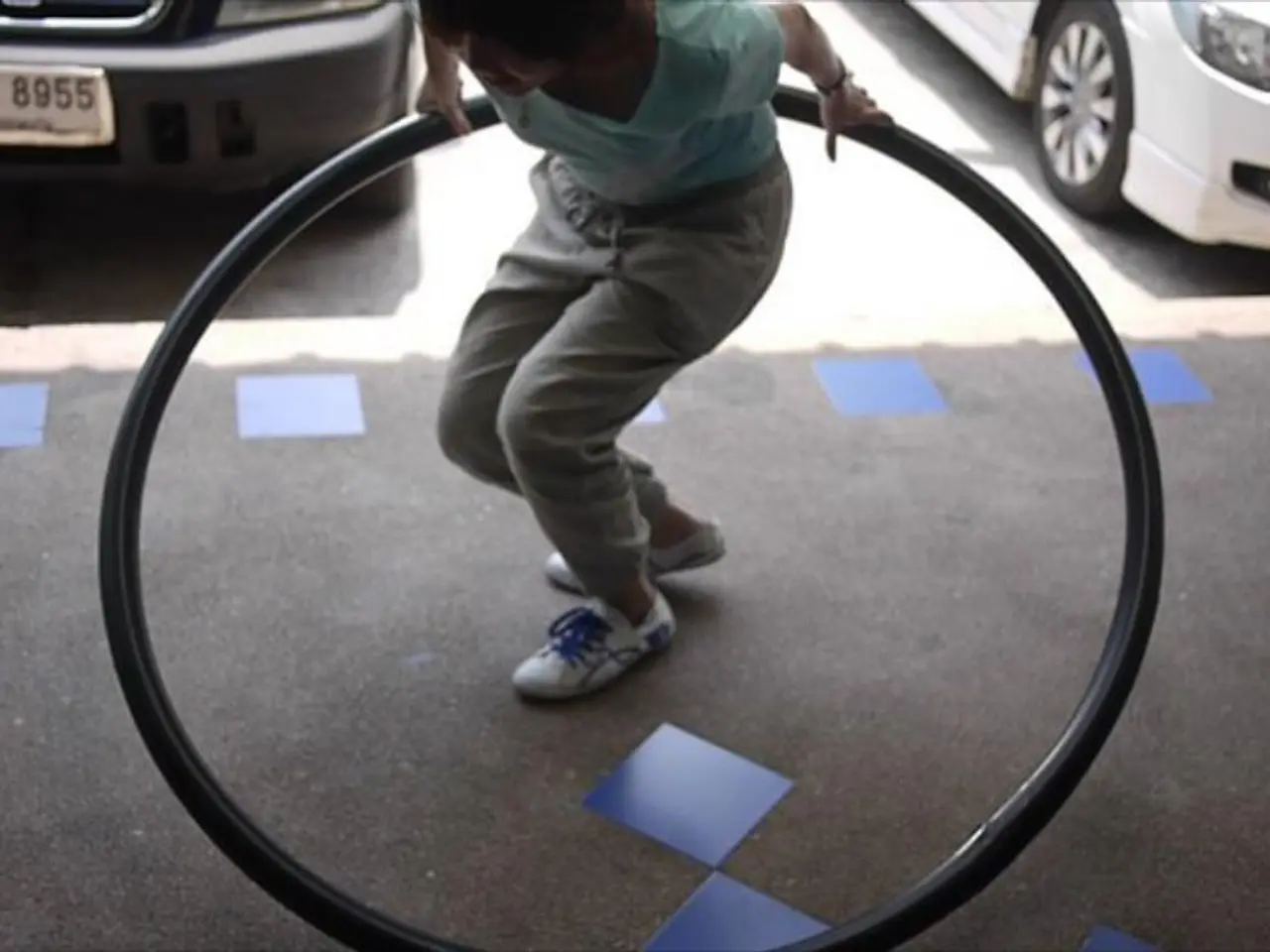Tips for Utilizing Ergonomics to Avoid Lumbar Herniation
In today's world, where work often involves long hours spent sitting or lifting heavy objects, it's crucial to prioritise ergonomics to prevent musculoskeletal disorders such as slipped discs. Here are some essential practices to follow.
Firstly, when lifting, it's important to bend your knees and use your leg muscles instead of relying on your back. This simple technique can significantly reduce the strain on your spine. Additionally, avoid twisting or jerking motions when lifting, and if an object is too heavy to handle alone, ask for assistance or use lifting equipment.
While sitting, ensure your feet are flat on the floor, back is supported by the chair, and shoulders are relaxed. This posture can help avoid excessive stress on the spine. Maintaining proper posture, whether sitting or standing, is a fundamental aspect of ergonomic practices.
The ergonomics of your workspace plays a significant role in preventing slipped discs. An ergonomic workspace should have a desk height that allows your elbows to be at a 90-degree angle when typing or using a mouse. Consider using an adjustable monitor stand, laptop stand, or ergonomic keyboard and mouse to achieve the proper height and provide proper wrist support.
Position the computer screen at eye level to avoid bending the neck or hunching forward. Standing with shoulders back, head aligned with the spine, and using a footrest or anti-fatigue mat can help reduce the strain on the back while standing for long periods. Adjust the chair height accordingly and use a lumbar support cushion to maintain the natural curve of the spine.
Incorporating stretching exercises that target your back, neck, and shoulders can help alleviate tension and maintain flexibility. Taking regular breaks to stand up, stretch, and move around can also help reduce the risk of developing slipped discs.
Prolonged sitting or repetitive activities can put strain on your spine and increase the risk of developing slipped discs. To counteract this, consider setting reminders to stand up and move around, or invest in a standing desk if possible.
The Verwaltungs-Berufsgenossenschaft (VBG), an organisation that offers information about the prevention of butcher diseases, provides occupational psychological topics and measures for improving working conditions in companies, including prevention-related content.
Lastly, avoid sudden movements or overexertion, and listen to your body's signals to avoid pushing beyond your limits. By following these ergonomic practices, you can significantly reduce the risk of developing slipped discs and maintain a healthier, more comfortable work environment.
Read also:
- Inadequate supply of accessible housing overlooks London's disabled community
- Strange discovery in EU: Rabbits found with unusual appendages resembling tentacles on their heads
- Duration of a Travelling Blood Clot: Time Scale Explained
- Fainting versus Seizures: Overlaps, Distinctions, and Proper Responses






